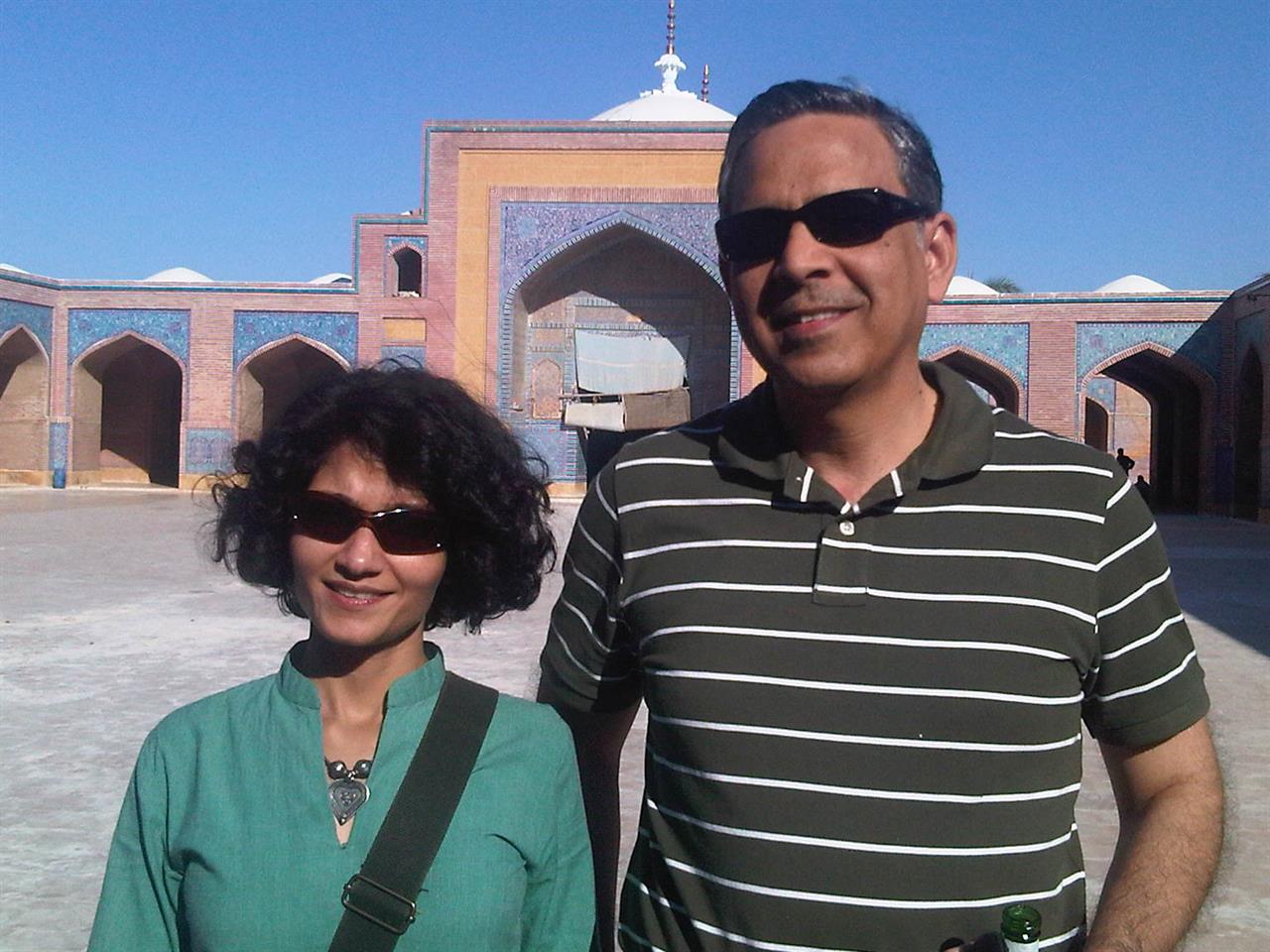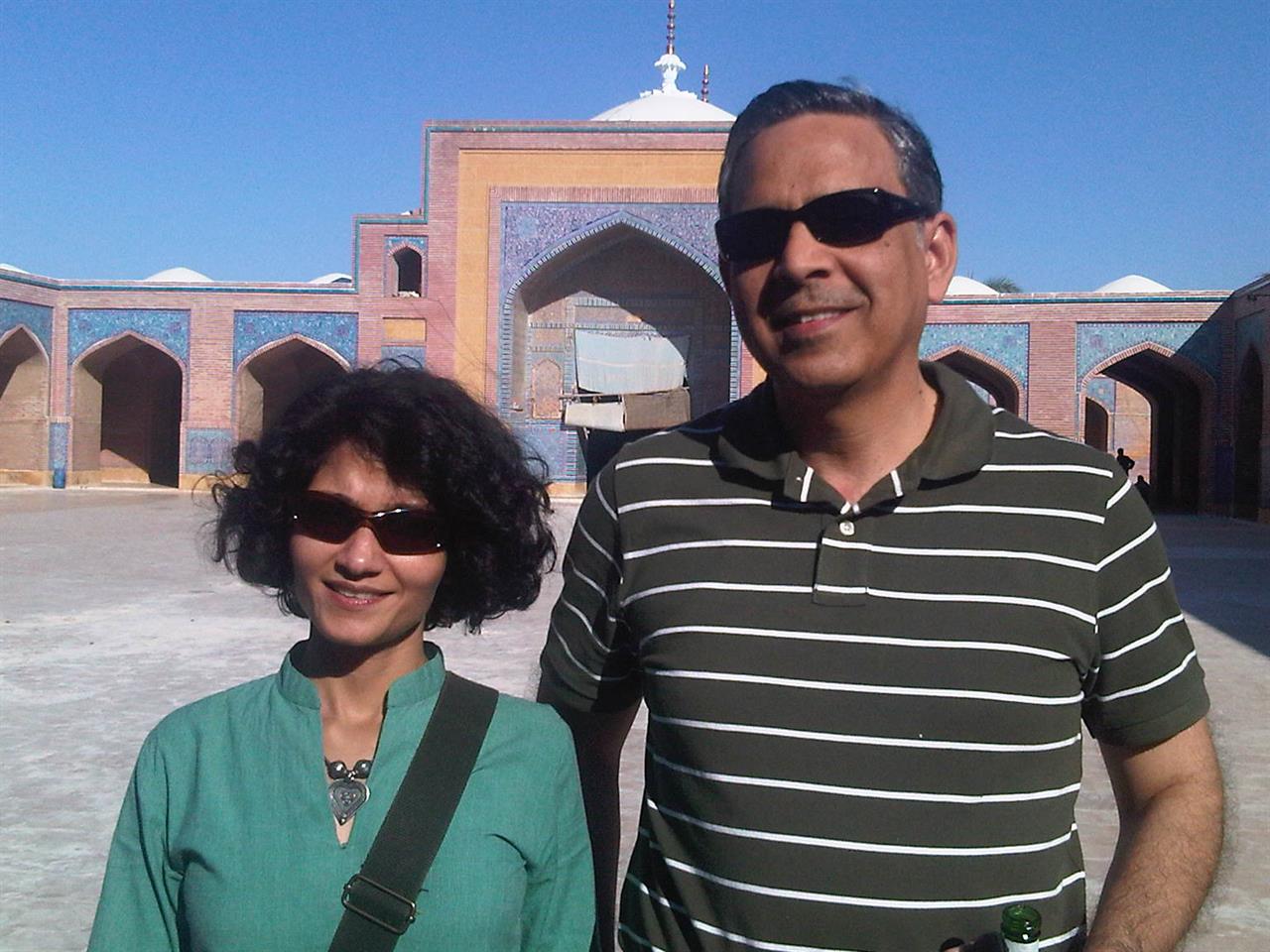
I didn’t know what to expect when I accepted the invitation to visit Karachi. Faraz Khan, a Pakistani businessman passionate about social change, had insisted for more than a year that I go to visit his country. When I finally accepted Faraz was unable to be my guide due to forced hospitalization. In the best country style a last minute solution was devised and his partners, Khusro and Unjela, took care of everything impeccably.
Like the majority of Westerners, my knowledge of Pakistan was limited to terrorist attacks and government corruption as reported by media. I assumed this trip would be an adventure with an acceptable risk. At least I could respect my tradition of celebrating Christmas festivities in a Muslim country.
After 10 relaxing days in Malaysia – as safe and calm as Switzerland – I moved to Karachi with Dr Darren, my loyal travel companion. Unjela, founder of the NGO Urbanics with a bankground with World Bank and international business, devised a full schedule of meetings with civil society leaders and field-trips.
Karachi is the commercial heart of Pakistan. It produces one fourth of the national income, has the largest number of industries in the country and is one of the world top megalopolies with its polulation between 18 -20m of which two thirds are below 25 years old. No surprise then that the last mayor was 38 – just one year older than myself.
Despite what the journalist Anatol Lieven writes about the city in his last book Pakistan a Hard Country, where he defines Karachi not merely as the best run city in Pakistan but one of the best in South Asia, I was surprised by the lack of public services. Here there is no free meal for anybody.
Karachi would look like a recipe for disaster with one of the fasted growing (and youngest) populations on earth, sways of migration due to conflicts and natural disasters, slow economic growth and high unemployment. However, seen on the ground Karachi is a land of social enterpreneurs forged out of necessity. If you don’t care just for yourself here you have plenty of opportunities to do good and in the few days I was in Karachi I met many such people who are in the business of helping others.
Saad Amanullah Khan‘s business cards says he’s the CEO for Gillette Pakistan but I’ve been with him for the last 3 days going from one social enterpise to the next. I wonder when he actually finds the time to do his day job and rests from all his charitable committments. Why does it do it? I’m not sure but he does it and with passion and determination. This matters!
Dr Mubina Agboatwalla left aside a lucrative carrier in the public sector to provide health and education services for the most underprivilaged kids and families. She founded the NGO Hope. Yesterday she took us to visit schools and hospitals in the countryside. She has established 200 facilities across the country. Perhaps she can provide just a room and a teacher, but 25 more children have access to primary education in this way.
If you haven’t realized yet goverment doesn’t put a rupi in these initiatives. They rely completely on philanthropy and social entrepreneurship. Those heroes are the only public services people have access to.
Isn’t there a lesson for Westerners keen on lecturing on terrorism and corruption but reluctant to trasform their moribund (obese) welfare state?
There are lessons to learn in Pakistan. These are compelling arguments for ceasing to critise the country and instead connecting to its people.
17 centesimi al giorno sono troppi?
Poco più di un euro a settimana, un caffè al bar o forse meno. 60 euro l’anno per tutti i contenuti di VITA, gli articoli online senza pubblicità, i magazine, le newsletter, i podcast, le infografiche e i libri digitali. Ma soprattutto per aiutarci a raccontare il sociale con sempre maggiore forza e incisività.

